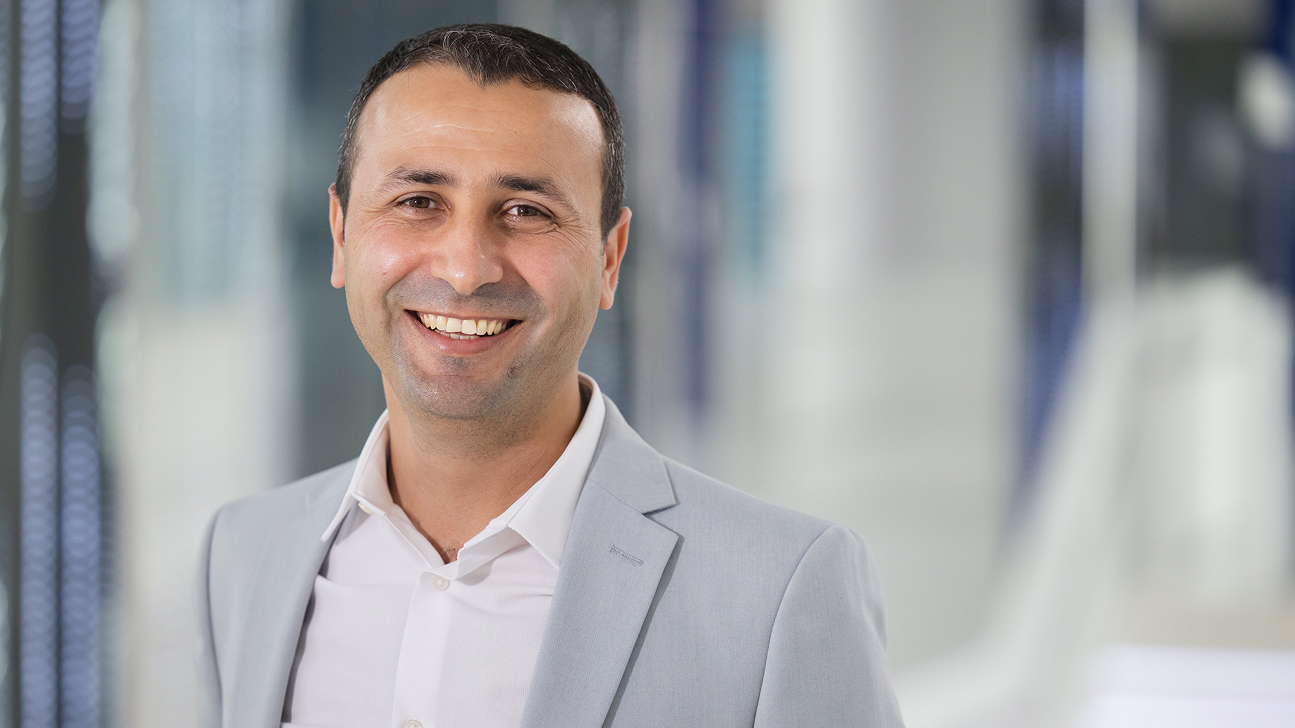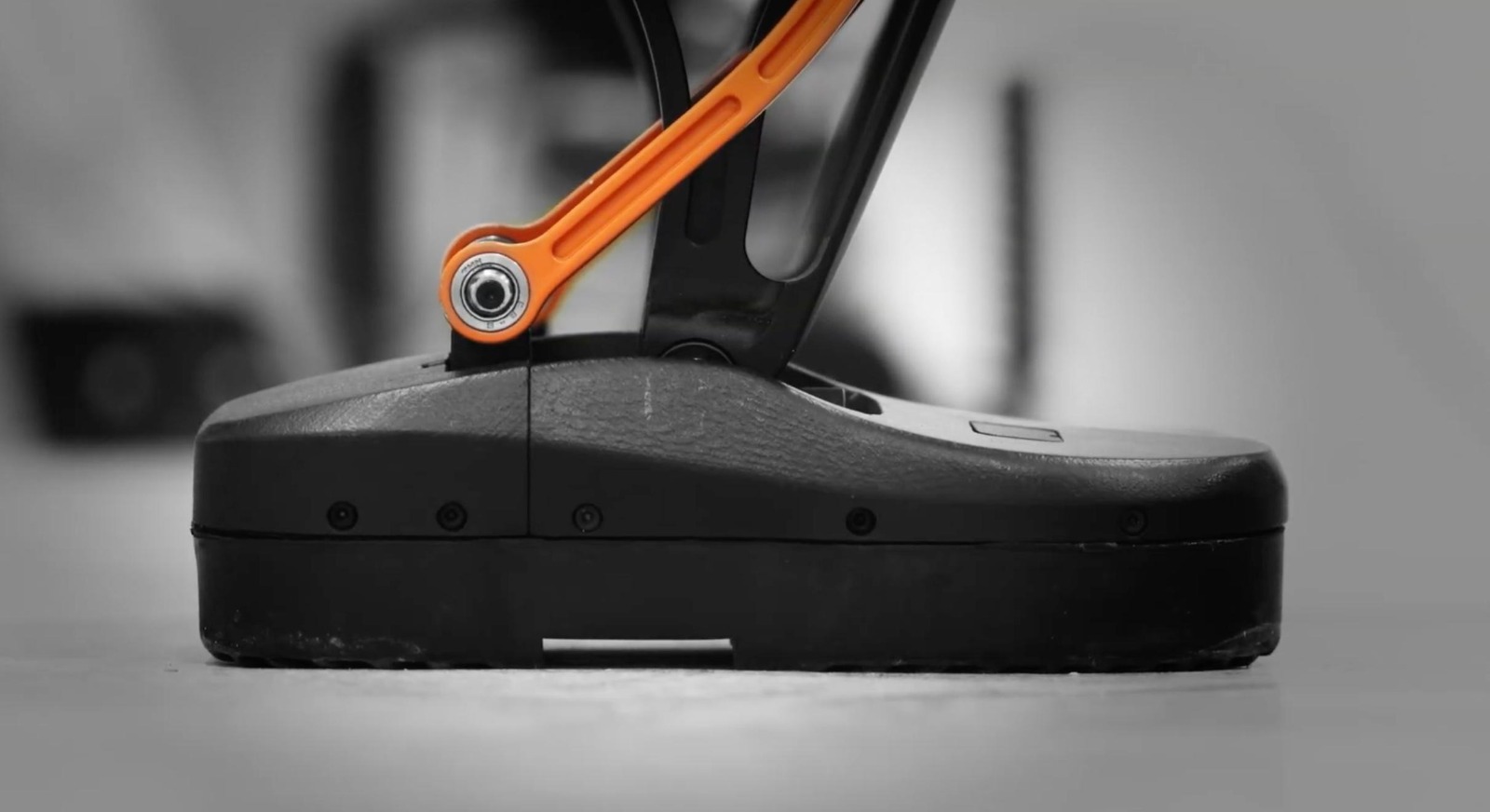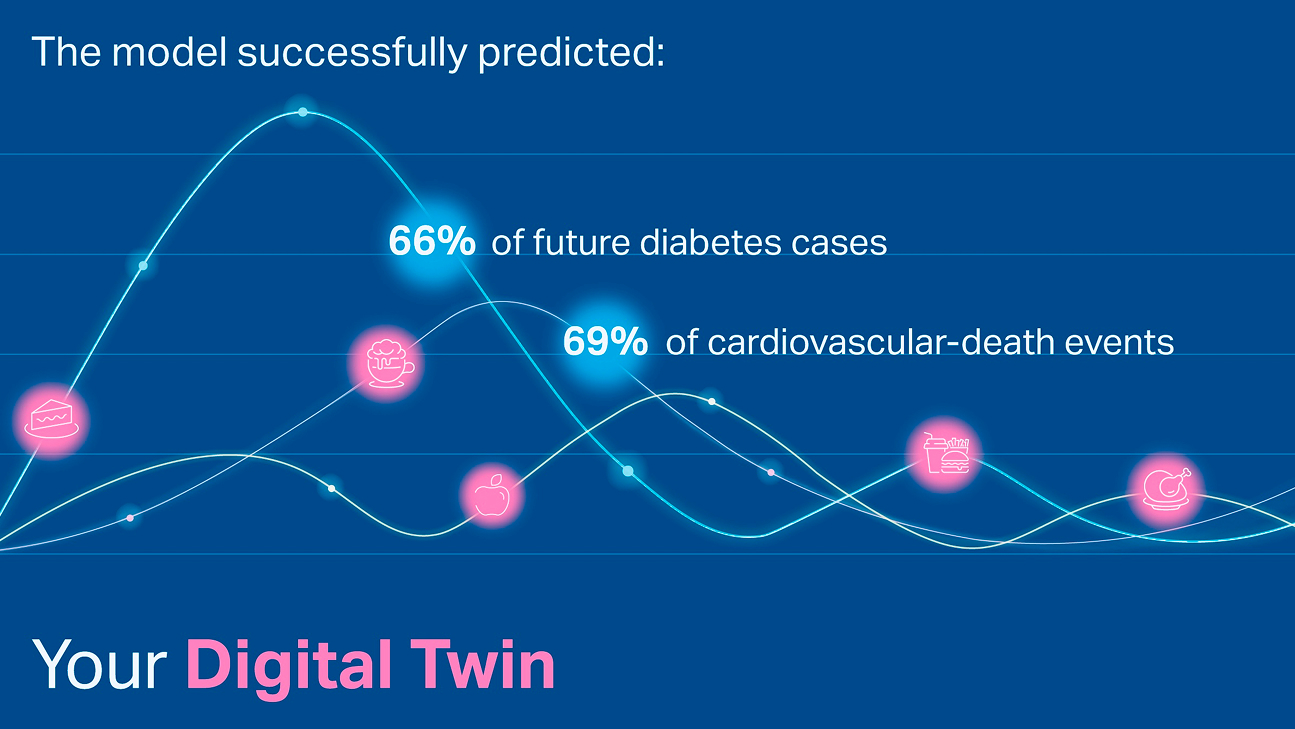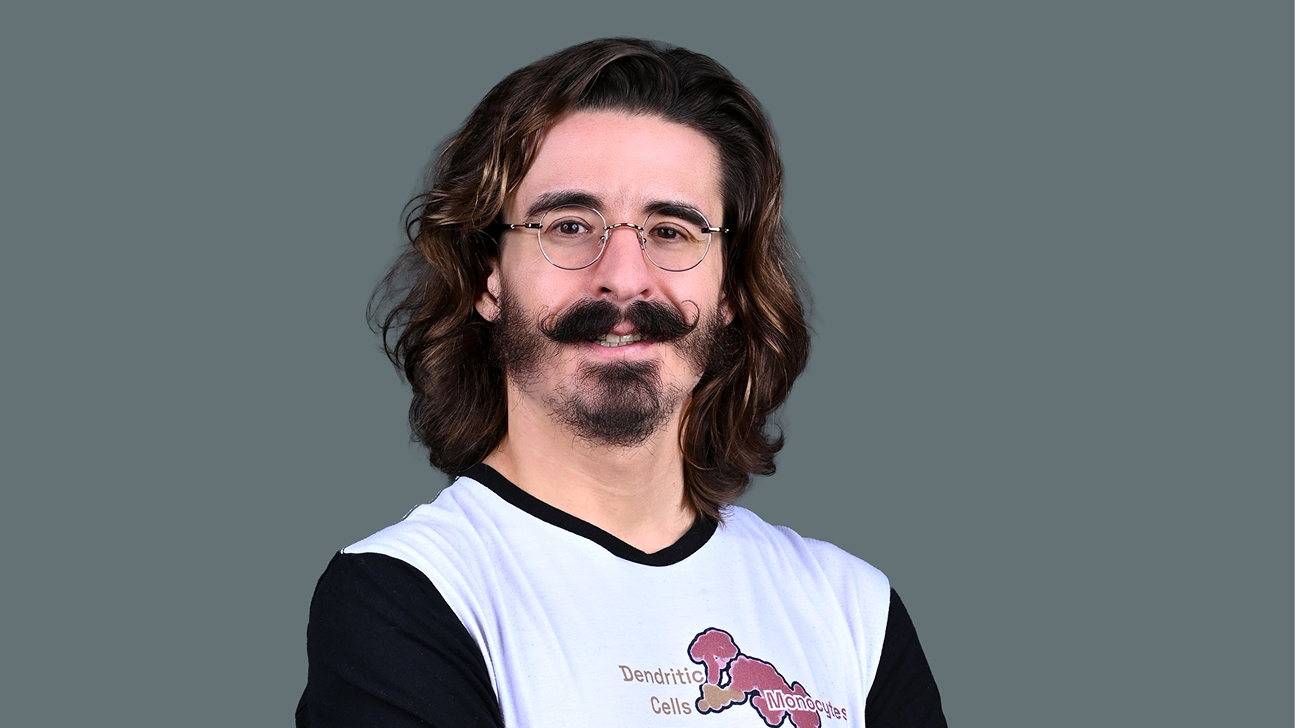From prototype to patient: advancing AI for equitable healthcare
Monday, September 15, 2025

For Associate Professor Mohammad Yaqub the journey from Oxford laboratories to global AI leadership has been defined by one conviction: research only matters if it touches people’s lives.
With a decade at Oxford, years in industry – including as VP of Engineering at Intelligent Ultrasound – and now as head of the Biomedical Image Analysis Lab at MBZUAI, he has lived through every stage of the innovation pipeline: discovery, translation, and deployment. Today, his mission is clear: harness AI to make healthcare not only smarter but also accessible and sustainable across the globe.
“I care about research, but I care more about translating the research,” he says. “Publish the paper, yes, but always ask: how will this benefit the patient?”
Industry as a bridge to impact
Yaqub began his career with a Ph.D. at Oxford, focusing on fetal health. Continuing in academia was the long-term goal, but he made a conscious decision to step into industry after his doctorate. “I wanted to take my Oxford research and see its real-world value,” he says.
His work on anomaly scans during pregnancy evolved into SanNav – and AI-based fetal anomaly system that went from lab prototype to licensed spinout, then an FDA-approved product and eventually into the portfolio of GE Healthcare. It now helps millions of women each year.
The experience was formative. “Industry was my transition period,” he explains. “But it gave me skills and perspective I could never have gained in academia alone.”
There was also a very personal dimension for Yaqub which truly validated the work he had committed to: when SanNav was used on his own wife during pregnancy.
“As I watched the scan of my son, and saw the AI guiding the sonographer, it was no longer about research papers or FDA approvals,” he says. “It was about my family. That was the moment I knew this work can change lives.”
A new challenge
After more than 13 years in the UK, Yaqub was drawn to a bold new venture in far-away Abu Dhabi: MBZUAI, an environment where he could help shape a new model of research and education in artificial intelligence.
“The idea of an AI-only university was irresistible,” he says. “At that time, no one else had founded a university entirely dedicated to AI. Departments of AI existed, of course, but an entire institution focused solely on artificial intelligence? That was groundbreaking. To me, it was very exciting, I wanted to be part of that journey.”
For him, MBZUAI offered more than just a faculty position; it was a chance to play a foundational role in building an institution with global ambition. The University’s dedicated focus on AI means that collaborations are not confined to one department or field, but span across fields. Its strong support for research translation and industry partnerships also aligns perfectly with his own philosophy of moving innovations from concept to clinic.
“It wasn’t just about joining a university,” he reflects. “It was about being part of a founding team, about shaping the DNA of an institution that could redefine how AI research is done – not just in this region, but globally.”
At MBZUAI, he found the right platform to combine his academic expertise with his industry experience: training the next generation of AI leaders while ensuring that research produced at the University is designed with real-world application in mind.
Industry lessons: a philosophy of translation
Yaqub’s years in industry shaped not only his technical expertise but also his philosophy of research. Working alongside hospitals such as Oxford University Hospitals, Bath Royal, and St. George’s, he saw firsthand the difference between testing AI in controlled lab conditions and deploying it with patients on the ward.
“Every student who joins my lab hears the same thing: don’t stop at the publication,” he says. “Think beyond – how does this get to the patient’s bedside?”
That philosophy defines the Biomedical Image Analysis Lab (BioMedIA) at MBZUAI, where Yaqub trains the next generation of AI scientists to not only to develop algorithms, but also understand the path from prototype to clinic.
Having expanded his own research into cancer and cardiovascular disease, the lab spans fetal health, cardiovascular disease, oncology, and neurodegerative disease – all united by one common thread: early detection.
Yaqub gives the example of fetal health: “Six million children are born with congenital disease each year, and half remain undetected. That statistic hasn’t changed much in 15 years. We must do better.”
MICCAI in Abu Dhabi: A global first
Alongside the work coming out of BioMedIA, Yaqub is helping to spotlight the quality of the region’s medical research in another exciting way.
In 2026, Abu Dhabi will host MICCAI for the first time in its 29-year history. The conference is widely considered the premier event in medical imaging and computer-assisted intervention, convening more than 3,000 researchers and industry leaders.
As the driving force behind the effort to bring the conference to the UAE, Yaqub will serve as the 2026 edition’s General Chair.
“It’s not just about hosting a conference,” he says. “It’s about showing the world how advanced this region is in AI research, and inspiring global talent to see Abu Dhabi as a place to work, collaborate, and innovate.”
Hosting duties will officially hand over to Yaqub, MBZUAI and Abu Dhabi at the end of the 2025 event, which takes place in Daejeon, South Korea, from September 23-27.
The theme of this year’s conference – From Concept to Clinical – resonates strongly with Yaqub’s career. And as an organizing committee member, he is helping bring researchers and industry closer together.
“What’s missing is the bridge,” he says. “Often researchers lack the time or the skills to take ideas forward. Industry wants to move fast but doesn’t always have the long-term depth. Conferences like MICCAI are crucial in closing that gap.”
Having taken an AI tool all the way from concept to FDA clearance, his insight is grounded in experience. He knows the hurdles – data access, lack of clinician engagement, and complex regulation – but also how they can be overcome with persistence and collaboration.
Democratizing healthcare: equitable access and sustainability
For Yaqub, the ultimate test of AI in healthcare is whether it reaches those who need it most. He is especially passionate about point-of-care ultrasound – portable devices that can be connected to a smartphone, making imaging available in remote villages far from hospitals. But accessibility isn’t just about hardware.
“The real challenge is interpretation,” he says. “A nurse in a rural clinic may capture images, but who will read them? That’s where AI comes in, to provide guidance, to suggest next steps, to democratize expertise.”
This focus on accessibility is also a response to sustainability. “Healthcare as we know it is not sustainable,” he warns. “COVID showed us that hospitals can’t absorb every patient. AI-supported, distributed care is the only path forward.”
Looking ahead, he sees AI as the great equalizer in healthcare. His long-term goal is to make affordable, accessible, and sustainable AI-driven care a reality, not just in advanced hospitals, but in underserved regions worldwide.
“We cannot accept a world where billions of people still lack basic access to healthcare,” he says. “AI gives us the chance to change that, and we must seize it.”
- healthcare ,
- industry ,
- computer vision ,
- biomedical ,
- medicine ,
- MICCAI ,
- medical imaging ,
Related
MBZUAI and Minerva Humanoids announce strategic research partnership to advance humanoid robotics for applications in the energy sector
The partnership will facilitate the development of next-generation humanoid robotics tailored for safety-critical industrial operations.
Read MoreAI foundation model GluFormer outperforms clinical standards in forecasting diabetes and cardiovascular risk
Nature-published paper with MBZUAI researchers demonstrates how AI can transform glucose data into powerful predictors of long-term.....
- digital public health ,
- cardiovascular ,
- diabetes ,
- HPP ,
- nature ,
- health ,
- foundation models ,
From Silicon Valley to social impact through science and education
Eduardo Beltrame reflects on his journey from Brazilian public education to Silicon Valley and MBZUAI, and why.....
- entrepreneurship ,
- biology ,
- faculty ,
- computational biology ,
- Undergraduate ,
- digital public health ,
- social impact ,


